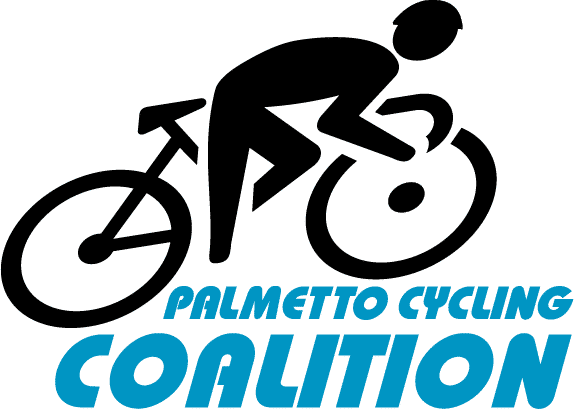Community Spotlight: John McBurney
FEB 11, 2019, by Corrine Reed


For this Community Spotlight, we interviewed John McBurney – a neurologist in Greenville with a passion for expanding access to different modes of transportation. He also routinely bikes to his job at Bon Secours-Mercy St. Francis.
John signed onto our policy letter of support on behalf of
McBurney Integrative Neurology. If you would like to sign our policy letter of support, click here.

When did you start biking for recreation?
I started as a teen in the late 60s early 70s riding in the afternoons with my grandfather – he was eccentric and very athletic. He even got hit by a car while biking once. He got us these 10 speed bikes, and we rode the dickens out of those things!
As it usually goes, I became really sedentary in college, especially during my undergraduate degree. While I was completing my residency, I got into running. Then, I realized that I wanted to be inclusive of my wife and kids, so I got back into bikes.
How did you get started with commuting by bike?
Where we used to live, in Spartanburg, there limited walkable streets, especially in the West Spartanburg area where we lived. I decided to get back into bicycling as a sport after a hiatus of a few years. Ironically, I ended up driving my SUV to a place to go ride!
Biking as transportation really kicked off when I lived in Portland, Oregon – you could get anywhere by bike there!
I met a guy in a yoga studio in Portland who didn’t drive! It was the craziest thing I’ve ever heard, until I tried commuting by bike for myself. Within 6 months, I realized I was just driving my car to keep it from going into disrepair. I even had to wash off the moss that grew on it from how infrequently I drove!
I ended up giving my car to my daughter. I only drove 800 miles in the first year we lived in Portland. So we got by with one car and a lot of biking. One of the best ways for a couple to save money is to only have one car.
Nowadays, I don’t drive enough to be a competent motorist, plus I know how to get around with bike cut throughs. At this point, I’d have to re-learn how to navigate the city to drive my car.

So why do you ride now?
I physically enjoy being on a bike and moving through the air. My work is so close that there’s no point in cranking up a 5,000 pound SUV – it’s too far to walk and too close to drive, so biking is perfect!
Biking is good for a healthy lifestyle. In America, we have epidemic levels of obesity and chronic diseases. We need to reengineer the way we live. We need to move with our own power, rather than burning up old dinosaurs.
Hypermobility truly looks like a dead-end street. There is a quantifiable health risk associated with driving: the more you drive, the more sitting and stress you expose yourself to, and the more likely you are to develop chronic illness. We see this a lot with folks who commute 30-40 miles to and from work.
How would you describe biking and walking where you live?
The area we live in is a bike/walk-friendly bubble in downtown Greenville. I describe biking in Greenville as being like navigating a series of hospitable islands surrounded by shark-filled waters. The bike score for the city is in the 30s; I don’t think the city wants to be like that, long-term.
What are the transportation barriers you see where you live?
The issue isn’t “can you go for a recreational ride?” it’s “can you get where you need to go?”
There needs to be a shift in how the city approaches transportation – biking and walking need to be treated as a legitimate means of transport, not just recreation. Enough people in Greenville ride so even if drivers don’t ride, they know someone who does.
What do you want people who drive cars to know?
It doesn’t matter if you’re in a car or walking or on a bike, everyone is equal under the law regardless of their transportation choice
Planners who design streets need to know that people aren’t going to use biking facilities if they don’t feel safe. You can’t just paint a sharrow and expect people to ride! I want planners to not just think about experienced racers, but to think about where grandparents would feel safe riding with their grandchildren
How would you describe other’s attitude towards biking and walking?
I’m the only person where I work, Bon-Secours St. Francis Hospital Downtown, who bikes to work. I often find folks overestimate risk, and get worried when they find out I bike to work. A lot of people want to be more active in their commute, but don’t know where to start.
What would you like DOT Commissioners to know?

I’m concerned about the extent to which we are entrenched in cars. Vehicles have become an extension of who we are. It’s often seen as an affront to people’s identity to make room for other transportation methods. In many places, half the space in cities is dedicated to cars! The current transportation system is heavily subsidized and the built infrastructure plays a major role in peoples’ choices about where and how they live…for both good and, too often, ill.
I also want for people to rethink how they view traffic. It’s not that bicyclists and pedestrians are in your way, they’re actually taking some of the pressure off your road budgets by causing less wear-and-tear on the roads!
Anything else you want to add?
If I could summarize my beliefs in a sentence or phrase it’s this:
When you love nature…she loves you back.
